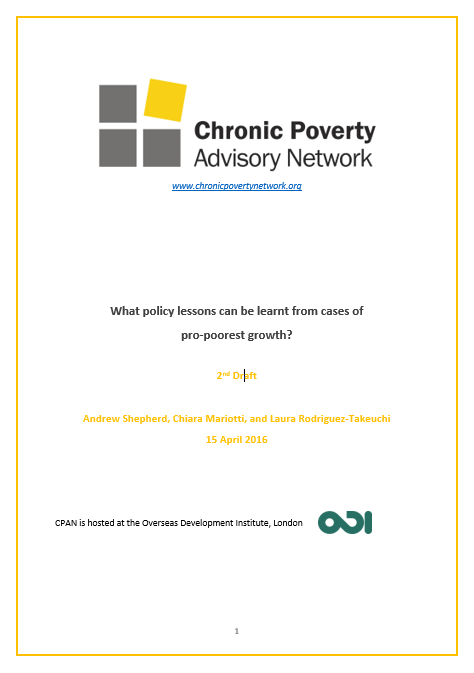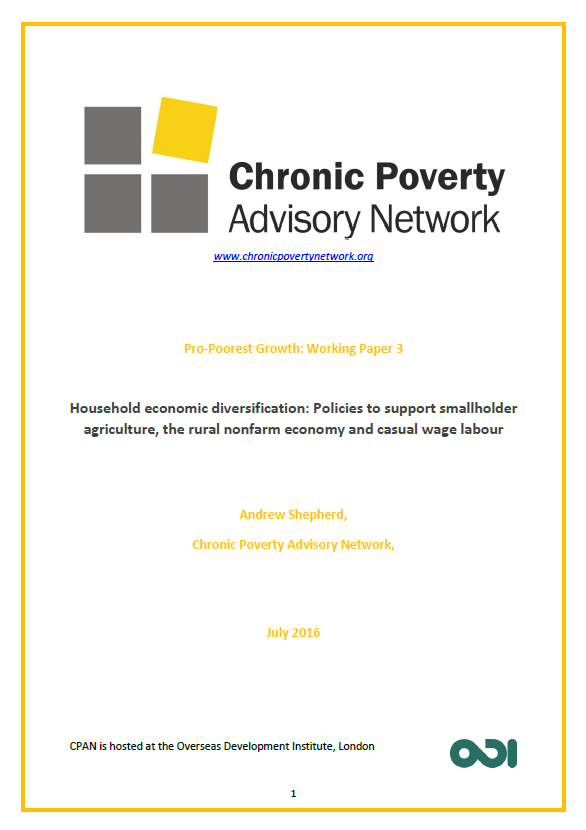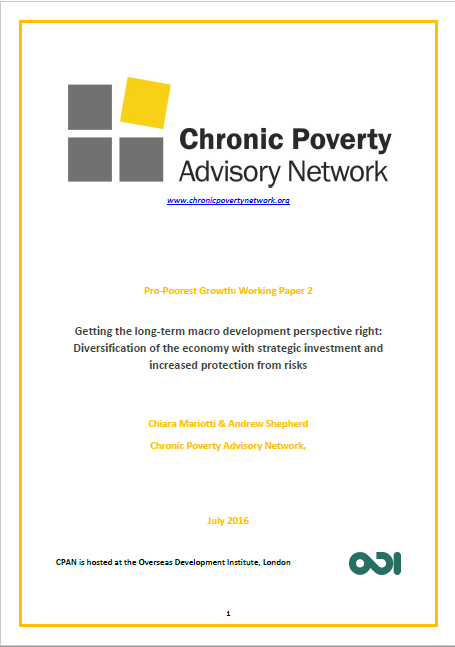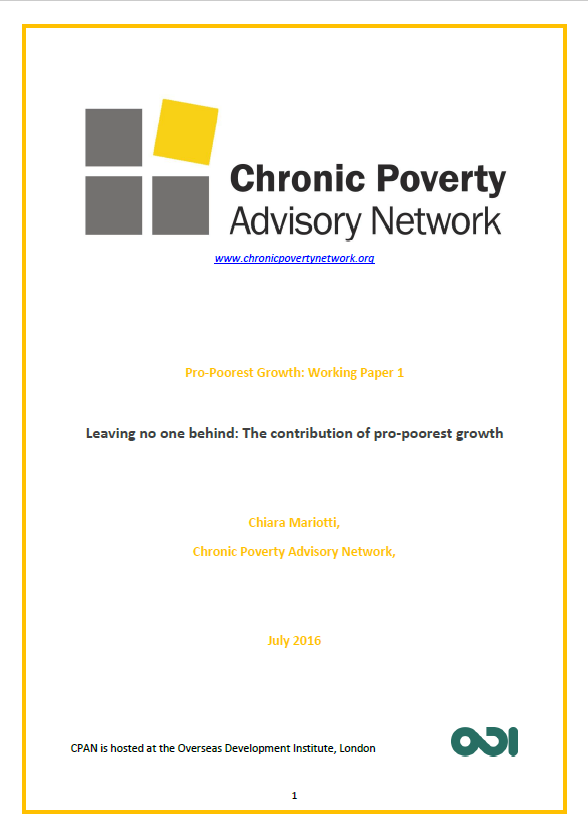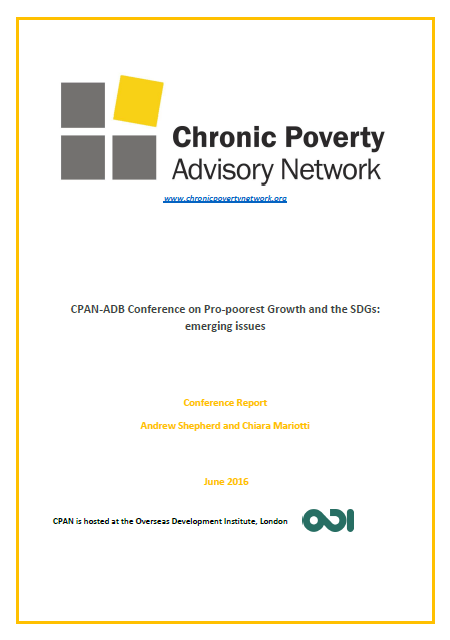Following up on the paper Getting the long-term macro development perspective right: Diversification of the economy with strategic investment and increased protection from risks, the purpose of this Working Paper is to explore a menu of policy recommendations that developing country governments can use to think through their policy-making decisions and ensure the poorest people participate in economic growth on good terms, such that they can sustainably escape poverty.
The key message of the research are:
Pro-poorest growth requires additional policy priorities to those advanced by inclusive growth or shared prosperity agendas.
State support for smallholder agriculture is vital but not the whole story: to achieve pro-poorest outcomes, it needs to be complemented by balanced rural development characterised by strong policy concerns for the nonfarm rural economy, and for rural (including agricultural) wage labour, as both account for greater proportions of the livelihoods of the poorest over time.
The poorest can benefit most from increased wage employment opportunities, which can be achieved by small and medium enterprise development. They can also benefit from self-employment, but this is developmentally more difficult and requires a strong combination of asset and cash transfers, financial inclusion and access to business development services
Creating more jobs is vital, but for the poorest so is raising minimum casual wage levels to match increasing living costs and improving working conditions
In low-income countries, social protection can be the major way to support wage levels and tackle the poverty gap
Download the paper (Via Orangedox)
This paper is one of the output of the research programme Leaving no one behind: adjusting economic growth strategies - Pro-poorest growth policy analysis
Author: Andrew Shepherd
Related Documents:

